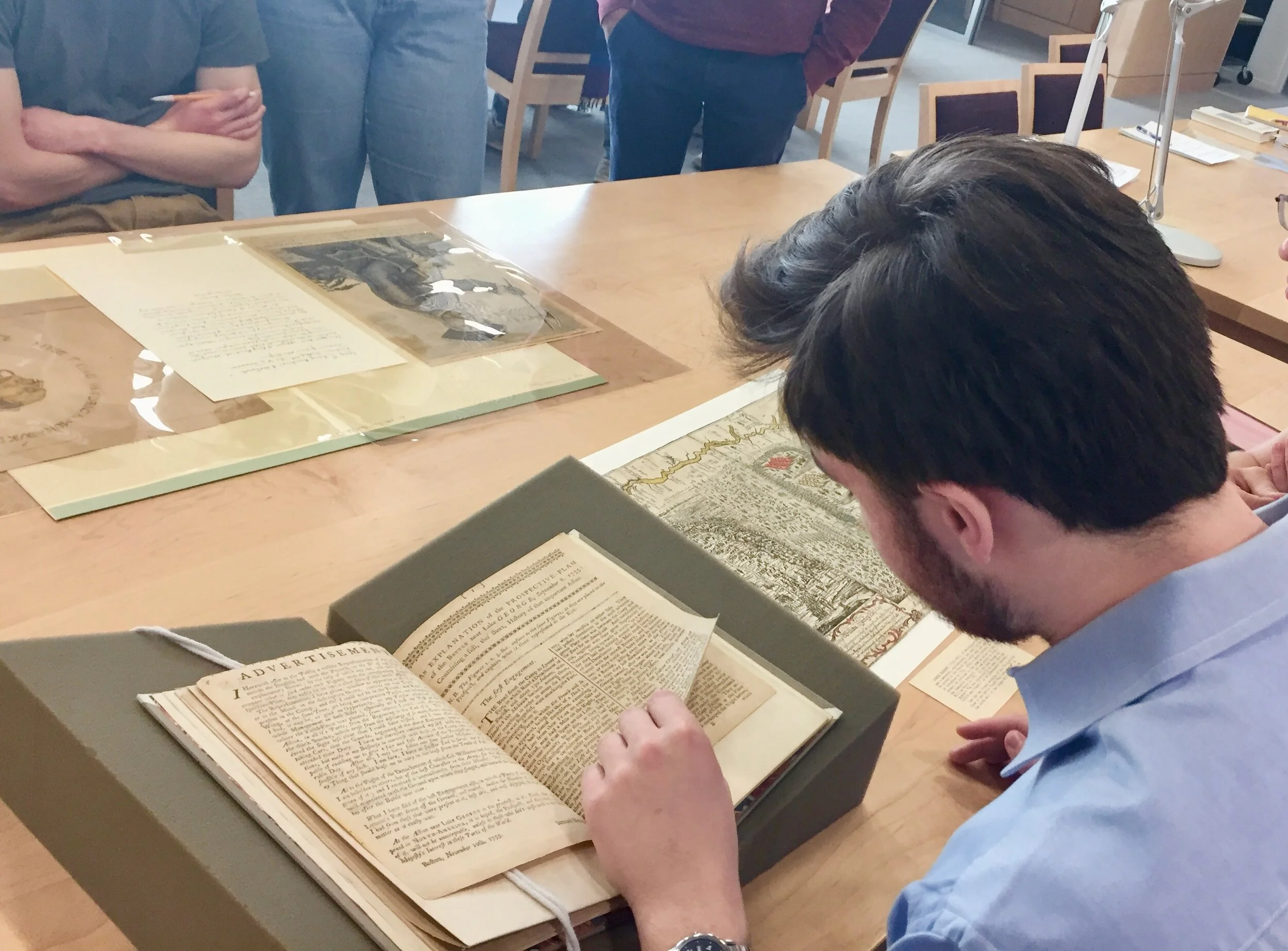“Teaching is an opportunity to share in the process of learning. My classrooms bring together many voices and perspectives to critically examine the past and its ongoing significances to contemporary peoples.
My classes focus on Native American, early American, environmental, and material culture topics, with special emphasis on the Northeast/New England and Atlantic World. I welcome students from all academic and personal backgrounds, and strive to create inclusive, supportive spaces for rigorous as well as creative learning.”
Place-based learning
I work with students to learn from nearby historical landscapes to gain first-hand exposure to their multi-layered human and natural stories. My classes make ample use of campus terrain, local mountains and rivers, and features of the built environment such as buildings and monuments in order to better comprehend how past societies shaped--and were shaped by--their surroundings.
Photo: History field trip to Peskeomskut/Turners Falls, Mount Holyoke College, 2015
Object-based learning
Tangible objects can convey stories about the past and its peoples that are absent in written documents, or difficult to access. Many of my courses use material culture--ceramics, furniture, tavern signs, garments, tools, and other items--to investigate how diverse individuals and communities made sense of the world around them. I have often collaborated with curators and educators at the Mount Holyoke College Art Museum and the Williams College Museum of Art to bring students into gallery and study spaces.
Photo: Material Culture research seminar visit to Williams College President’s House to examine historical furniture, 2020
Original research
I strongly believe that students can begin to explore research processes as soon as they arrive on campus. In all of my classes, from first-year seminars to upper-level research seminars, students have opportunities to engage in original investigations of historical topics. I help introduce them to research methodologies and resources, including campus professionals in Libraries, Archives, and Special Collections. When appropriate, advanced students who are thinking about pursuing independent study or a senior thesis project are welcome to talk further with me about possibilities.
Photo: Native American Histories class visit to Special Collections, Williams College Library, 2019
Courses offered
From Wampum to Phillis Wheatley: Communications in Early America
North American Histories to 1865
The Atlantic World: Connections, Crossings, and Confluences
Place and Power in the American West and Pacific World
Sovereignty, Resistance, and Resilience: Native American Histories through 1865
From Sand Creek to Standing Rock: Recent Native American Histories
Disturbances: War, Violence, and the Aftermath of Conflict in Early North America
Homelands and New Worlds: Landscapes of Encounter in the Native Northeast and Colonial New England
The Afterlives of Objects: Telling American Histories through Material Culture and Museums
Mapping North America: Critical Cartographies
Land, Memory, Materiality: Histories and Futures of Indigenous North American Arts (graduate/undergraduate seminar)
Stockbridge-Munsee Community Histories, Presents, and Futures (collaborative course)


